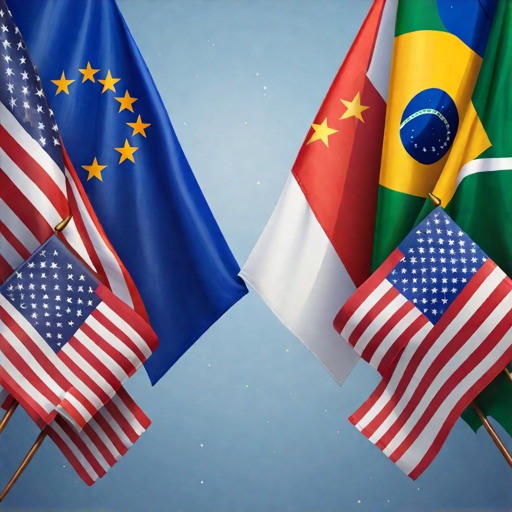By: Eman Zahid Jokhio
When it comes to the world of international relations and things related to geopolitics, we begin to see more, and more people understanding the concept of the world. In a world where power is constantly changing hands and diversifying, regions and countries are faced with the task of navigating an environment where everything is linked. Europe, with its diverse cultures, in-depth historical roots, and strong economy, finds its role in such a multi-polar world. In this opinion piece, we will be looking into how Europe contributes to these changes, the opportunities these changes bring and the challenges they face along with the strategies they use to overcome these challenges.
Europe has placed itself in a strategic position in politics and power dynamics ever since its existence. Be it the era of colonization or the Cold War, European nations have always had a say in these important matters, extending their authority beyond their continents. Then came the world wars, and the formation of superpowers in the form of the United States and the Soviet Union. That led to a shift in dynamics. This is when we see a Europe ravaged by war eventually leading to the formation of a world during the Cold War era, where the USA and Soviet Union were the dominant superpowers.
With the end of the Cold War, the world started to witness a new world order. After the collapse of the Soviet Union, it was the United States that held the position of a superpower. But, as the world entered the new century, power centers began to emerge yet again. Countries like China, India, and Brazil witnessed an increase in prominence along with alliances, such as the European Union (EU). This shook up the very framework and introduced a new form of global landscape, a multipolar one.
For Europe, this multipolarity brings numerous opportunities as well as challenges. EU’s say in international matters is solely due to its economic prowess. However, geopolitical tensions, economic inequality, and internal divisions pose a serious threat to Europe’s combined strength and power.
The European Union served as the right example for Europe’s economic integration, which has proven to be important post-war. With its unified currency and single market, the EU has introduced a level of economic interconnectedness that was unheard of among its member nations. However, due to this interconnectedness, Europe is vulnerable to external economic shocks and weaknesses.
The dynamics of international trade began to change when new economic powers, especially China, emerged. Europe tries to make its way through this new environment with an economy highly developed and technical industries at the cutting edge. In the multipolar world, Europe’s economic future relies on the balance between economic cooperation and competitiveness, the practices of fair trade, and addressing issues like intellectual property rights.
From a geopolitical perspective, Europe is facing more than one issue at the same time. Factors that influence Europe’s strategic landscape largely as Russia’s strong foreign policy, the ongoing Middle East wars, migration challenges, terrorism, and Europe’s transatlantic relationship with the USA.
EU’s foreign policy efforts such as the Common Security and Defense Policy (CSDP) and the Common Foreign and Security Policy (CFSP) are aimed at a common and successful European response to global challenges. But, the coherent EU action is often disrupted by national interests that diverge, especially among countries such as Germany France, and the UK.
In a world with multiple poles, Europe’s collective aspirations are reflected in the form of the European Union, a single supranational organization. Boasting 27 member nations and a population that exceeds 440 million, The European Union (EU) is a force to reckon with in the political and economic aspects of the world’s economy. Owing to its focus on human rights, multilateralism, and sustainable development, it holds an influential position among the institutions of global government.
Also, the EU is met with internal problems that include but are not limited to Brexit, the rise of populism, and debates revolving around the direction of European integration. With the formation of alliances with rising nations and maintaining balance with allies who are more established like the United States, Europe strives to assert its interests independently. This is reflected in its pursuit of “strategic autonomy”.
A complex interaction of geopolitical realities, economic imperatives, and historical legacies determines Europe’s place in the multipolar world. In establishing a secure and successful international order as power is more distributed, Europe’s ability to cooperate, adapt, and uphold its ideals will be key.
The continent of Europe faces the tall order of confronting huge obstacles, stories about dragons were widespread in a time of antiquity. Its diverse cultural heritage, commitment to democracy, and cooperative nature though provide a strong foundation to overcome these difficulties. Europe will play a more vital role than ever in promoting multilateralism and serving as a connector among various countries in a world where multipolarity is the new normal.

















